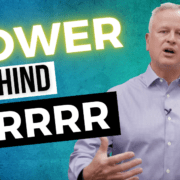Why You Should Fix Your Credit Score for the Current Market
Categories: Blog Posts
If you’re stuck with a bad credit score, a 911 loan could help you fix your credit to thrive in this competitive market.
One of the most common issues of investors we talk to is low credit score.
In the real estate world, when the Fed tightens everything up (as they have done recently), credit scores become more and more important. This means that the threshold of what qualifies as a “good” credit score goes up, and it’s almost impossible to get a loan if you don’t meet that threshold.
How can you fix that quickly so it doesn’t tank your investments?
The Changing Economic Landscape
Everyone used to have options. If your credit score was a little low, it was alright; you could still find someone willing to lend to you without too much penalty.
In recent years, things have shifted.
As the Fed tightens up, there’s less money going around, meaning banks don’t have as much money to lend as they used to.
How do they solve this problem?
They raise the requirements for getting a loan.
Now, instead of being minorly penalized for a low credit score, some people are finding it difficult to find loans at all. And some of the loans they do find are smaller and have significantly higher rates.
Some banks may not even look at your loan application if you don’t meet their credit score requirement. Therefore, to survive in this market, you need to fix your credit score.
Understanding Your Credit Score
The 2 largest factors that make up your credit score are payments and usage.
- Payments look at whether or not you’re paying on time.
- Usage looks at how much of your total possible balance you’re using each month.
For example, if your usage limit is $10,000, and you’re frequently using $7,000 of that, you have 70% usage.
Ideally, FICO wants to see you using about 20%-30% of your available credit. Any higher than that, and you become riskier for the banks.
Especially when you’re beginning as a real estate investor, it can be so easy to rack up the usage: getting supplies at Home Depot, paying contractors, etc.
It’s all-too-common to see people have $50,000 or $100,000 on maxed out credit cards.
This is where a credit 911 loan comes into play to pay down debt.
How Can I Set Myself Up to Avoid Needing a 911 Loan?
The root of this problem is almost always using personal credit cards for business-level needs.
Getting the right business credit card in the name of your investing company has a number of benefits:
- It won’t report to your personal credit if you pay on time.
- They don’t penalize high usage.
- Some business cards even reward running up a larger balance.
- Even if your business is brand new, if you apply for a business credit card with a high personal credit score, you’ll likely be approved.
We’ve partnered with Nav to help you find a business credit card that works well with real estate investing.
As with a personal card, you can find cards that offer perks and rewards that appeal to you. Just make sure you look for ones that 1) don’t report to your personal credit and 2) like high usage.
Our goal is to help you fix your credit score and get your business in order so that you never need a 911 loan again!
Read the full article here.
Watch the full video here:











